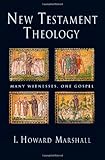New Testament Theology : Many Witness, One Gospel
Material type: TextPublication details: Illinois Intervarsity Press 2004Description: 765pISBN:
TextPublication details: Illinois Intervarsity Press 2004Description: 765pISBN: - 0830827951
- 230.0415 M3671
| Item type | Current library | Collection | Call number | Copy number | Status | Notes | Date due | Barcode |
|---|---|---|---|---|---|---|---|---|
 Reference
Reference
|
New Theological College Reference | Reference | 230.0415 M3671 (Browse shelf(Opens below)) | C1 | Not for loan | 00 Edn 2004 765p | 00023535 | |
 Books
Books
|
New Theological College General Stacks | 230.0415 M3671 (Browse shelf(Opens below)) | C2 | Available | 00 Edn 2004 765p | 00027734 | ||
 Books
Books
|
New Theological College General Stacks | 230.0415 M3671 (Browse shelf(Opens below)) | C3 | Available | 00032916 |
Browsing New Theological College shelves, Shelving location: General Stacks Close shelf browser (Hides shelf browser)
includes index and biblioraphy
Part I : Introduction How Do We Do New Testament Theology Part II : Jesus, The Synoptic Gospels and Acts The Gospels and New Testament Theology The Gospel of MArk, Matthew Luke-Acts: The Former Treatise Luke-Acts: the Sequel The Theology of the Synoptic Gospels and Acts Part III: The Pauline Letter The Letters to the Galatians, Thessalonians, Corinthians, Roamans, Philippians, Philemon, Colossians, Ephesians The Pastoral Epistles The Theology of the Pauline Letters Paul, the Synoptic Gospels and Acts Part IV: The Johannine Literature The Gospel of John The Letters of John The Revelation of John The Gospel, Letters and Revelationof John John, the Synoptic Gospels and Acts and Paul Part V: Hebrews, James, 1-2 Peter and Jude The Letter to the Hebrews The Letter of James The Letter of Jude The Letters of Peter Part VI: Conclusion Diversity and Unity in the New Testament
"New Testament theology is essentially missionary theology," writes I. Howard Marshall. Founded on a sure-footed mastery of the data and constructed with clear thinking lucidly expressed, this long-anticipated New Testament theology offers the insights born of a distinguished career of study, reflection, teaching and writing on the New Testament. Here is a New Testament theology that does not succumb to the fashion of settling for an irreconcilable diversity of New Testament voices but argues that "a synthetic New Testament theology is a real possibility. Beginning with the Gospels and Acts, proceeding to each of Paul's letters, focusing then on the Johannine literature and finally looking at Hebrews and the remaining general epistles, Marshall repeatedly stops to assess the view. And gradually he builds up a composite synthesis of the unified theological voice of the New Testament.






There are no comments on this title.